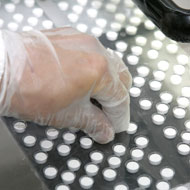Soil study could lead to new antibiotics

A better understanding of soil ecosystems could facilitate the discovery of antimicrobial agents.
New discoveries about how bacteria thrive in soil could aid the development of new antibiotics, according to Edinburgh scientists.
Research findings published in The American Naturalist may debunk the Baas Becking theory that bacteria can only prosper in their native environment. The truth may in fact be more complicated.
In order to kill fungi and other bugs, bacteria in soil produce potent biological agents, which scientists say could be used to develop new antibiotic drugs.
A research team from the universities of Edinburgh and Ottawa collected soil and bacteria samples from a forest in Western Quebec in Canada. By growing bacteria in soils from each of the sites sampled, the team discovered they could thrive in a range of different conditions.
The scientists now say the distribution of bacteria may be controlled by other factors, such as water and nutrient content, the number of predators and the levels of inter-species competition.
An increased understanding of how soil dictates where bacteria are found could facilitate the discovery of antimicrobial agents for the production of new antibiotics.
Commenting on the findings, lead author Dr Susanne Kraemer, from the University of Edinburgh, said: Soil often gets overlooked as an ecosystem, even though it is absolutely crucial for nutrient cycling, food and fibre production and the discovery of antibiotic compounds.
"It is surprising how little we know about the hundreds of thousands of bacteria which ensure the functioning of this ecosystem."



 The Veterinary Medicines Directorate (VMD) is inviting applications from veterinary students to attend a one-week extramural studies (EMS) placement in July 2026.
The Veterinary Medicines Directorate (VMD) is inviting applications from veterinary students to attend a one-week extramural studies (EMS) placement in July 2026.